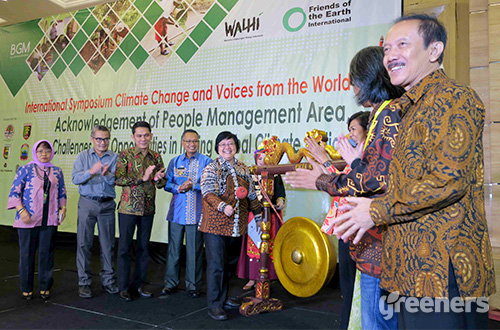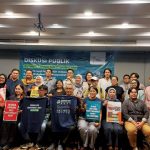Jakarta (Greeners) – Minister of Environment and Forestry, Siti Nurbaya Bakar, on Friday (25/11), had allocated 12.7 million hectares or ten percent of the country’s forest areas for social forestry, including community forest (HKm), village forest (HD), people’s plantation forest (HTR), farm forestry (hutan rakyat), partnership, and customary forest.
Furthermore, Minister Siti said that social forestry policy aimed to increase people’s welfare through forestry sector. In addition, the ministry had issued Indicative Map on Social Forestry located in 33 provinces, comprise of protected forest, production forest, converted production forest, permanent production forest, and partnership which covers at least 13,462,101 hectares.
Up to October 2016, the ministry had assigned 1,667,673 hectares of social forestry and a total of 1,737 groups of social forestry have been formed.
READ ALSO: FLEGT License Increase Indonesia’s Revenue
She added that access to manage forest was part of the effort to ensure people’s rights for livelihood were fulfilled, conflict resolution, eradicate poverty, protect the environment and tackle climate change.
“So, social forestry policy is not about permits but it’s the doorway towards welfare through forestry management,” she said.
Executive Director of Indonesian Forum for the Environment (Walhi), Nur Hidayati, said that 12.7 million hectares, equals to UK total areas, was part Indonesia’s contribution to fight climate change which supposed to be a momentum for better natural resources management, including to stop giving more portions to corporations that have proved to be failing.
“It is the time for the state to give the trust to communities by granting them the rights to manage forest,” said Hidayati.
READ ALSO: ICW Found Discrepancies in Forestry Reports Lead to Trillion Rupiah Loss for Indonesia
Meanwhile, Jagoda Munir, head of Friends of the Earth International, said that the world has seen impacts of climate change and it would lots of hard work from all people.
“We will keep on working hard to deal with impacts of climate change through climate justice and energy program, shifting to renewable and clean energy. This energy justice needs to be implemented because 1/5 of world’s population has no access to energy,” said Munir.
Attended by participants of 74 countries, the event is part of Biennial General Meeting, Friends of the Earth International, a global environmental group aiming for economic, social and ecological justice.
Report by Danny Kosasih



















































